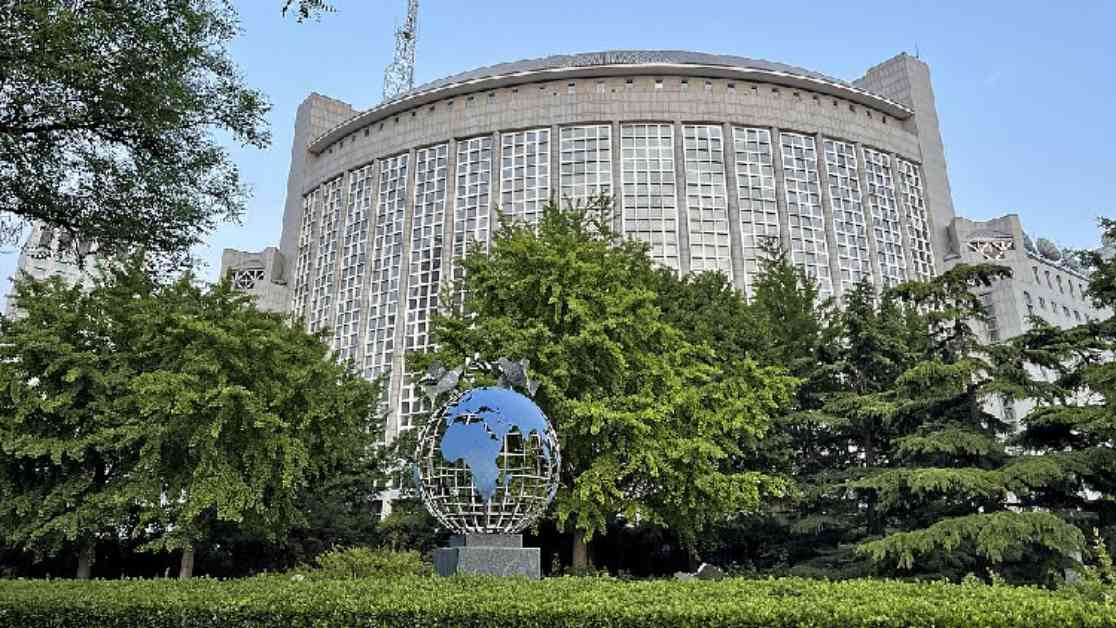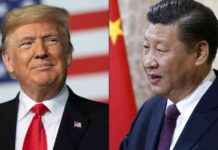China’s Response to U.S. Overcapacity Concerns: A Comprehensive Analysis
In recent years, the relationship between the United States and China in terms of global trade has been under scrutiny. With the U.S. expressing concerns about China’s growing investment in manufacturing and the potential impact on global overcapacity, tensions have been on the rise. The Chinese Foreign Ministry has responded to these concerns, emphasizing the importance of fair trade practices and the role that China plays in the global economy.
The Chinese Foreign Ministry’s Response
The Chinese Foreign Ministry has been quick to address the concerns raised by the U.S. regarding overcapacity and the potential for a new trade war. In a statement released by Foreign Ministry spokesperson Lin Jian, China’s investment in manufacturing was defended as a result of research and development efforts and a focus on cultivating comparative advantages. Lin emphasized that China’s global reputation for quality manufacturing is not based on subsidized dumping or protectionist measures, but rather on a commitment to innovation and progress.
Lin highlighted the significant role that China plays in the global economy, with the country consistently ranking first in global market share for exports and second for imports. This data underscores China’s importance as a key player in the international trade landscape and its impact on global economic stability.
The Impact of U.S. Trade Policies
While China has emphasized its commitment to fair trade practices, the U.S. has been criticized for its own trade policies that have raised concerns about the potential for a new trade war. The U.S. has implemented measures such as the Inflation Reduction Act, which includes discriminatory subsidies, as well as imposing high tariffs on goods from other countries. These actions have been seen as detrimental to the global economy and have raised tensions between the U.S. and its trading partners.
Lin pointed out that the U.S. has also hindered the functioning of the World Trade Organization (WTO) by impeding the appointment of new judges to the Appellate Body. This has further exacerbated concerns about the U.S.’s commitment to fair trade practices and its willingness to engage in multilateral trade agreements.
The Need for Cooperation and Openness
In response to the U.S.’s trade policies, China has emphasized the importance of cooperation and openness in order to foster global growth. Lin highlighted China’s commitment to expanding high-standard opening up and creating new opportunities for mutually beneficial cooperation. By promoting an open and inclusive approach to trade, China aims to not only benefit itself but also contribute to the growth and stability of the global economy.
It is clear that the relationship between the U.S. and China in terms of global trade is complex and multifaceted. Both countries play significant roles in the global economy, and their actions have far-reaching implications for trade and economic growth worldwide. It is essential for both countries to engage in constructive dialogue and cooperation in order to address concerns about overcapacity and trade imbalances.
The Path Forward
As the U.S. and China navigate the challenges of global trade, it is crucial for both countries to work towards a more cooperative and inclusive approach. By promoting fair trade practices, fostering innovation, and embracing openness, the U.S. and China can ensure a more stable and prosperous global economy for all. It is imperative for both countries to set aside differences and focus on finding common ground in order to address the challenges of overcapacity and trade tensions.
In conclusion, the response of China to U.S. concerns about overcapacity and the potential for a new trade war highlights the importance of cooperation, openness, and fair trade practices in the global economy. By working together towards common goals, both countries can contribute to the growth and stability of the international trade landscape. It is essential for all parties involved to engage in constructive dialogue and collaboration in order to address the challenges and opportunities presented by global trade.

















